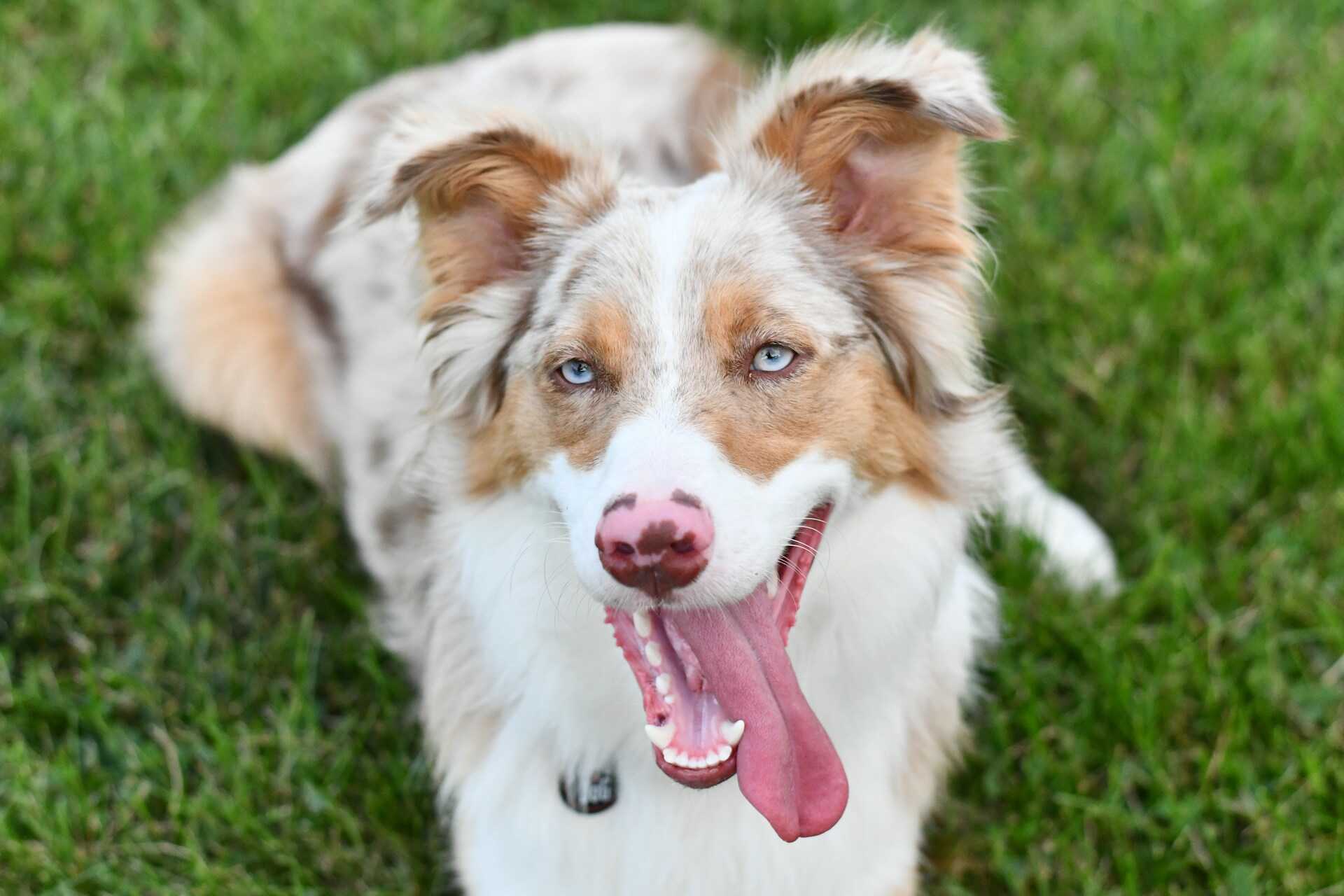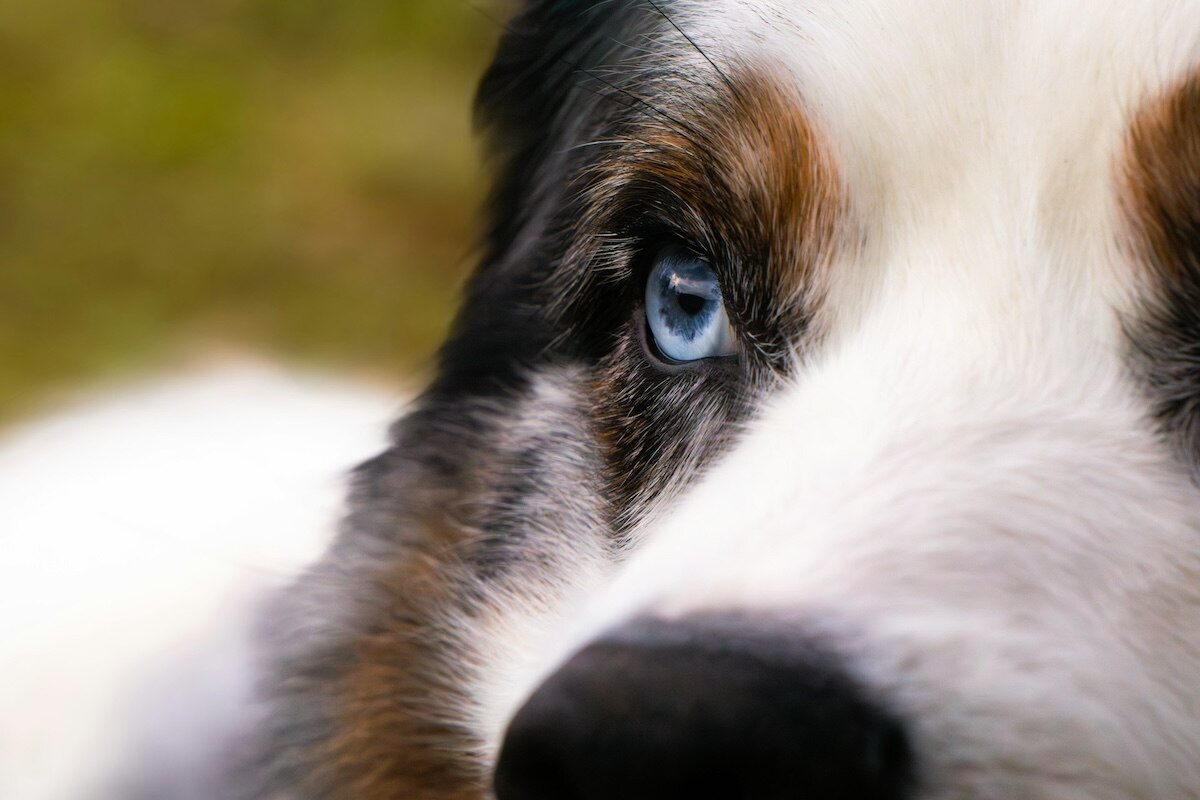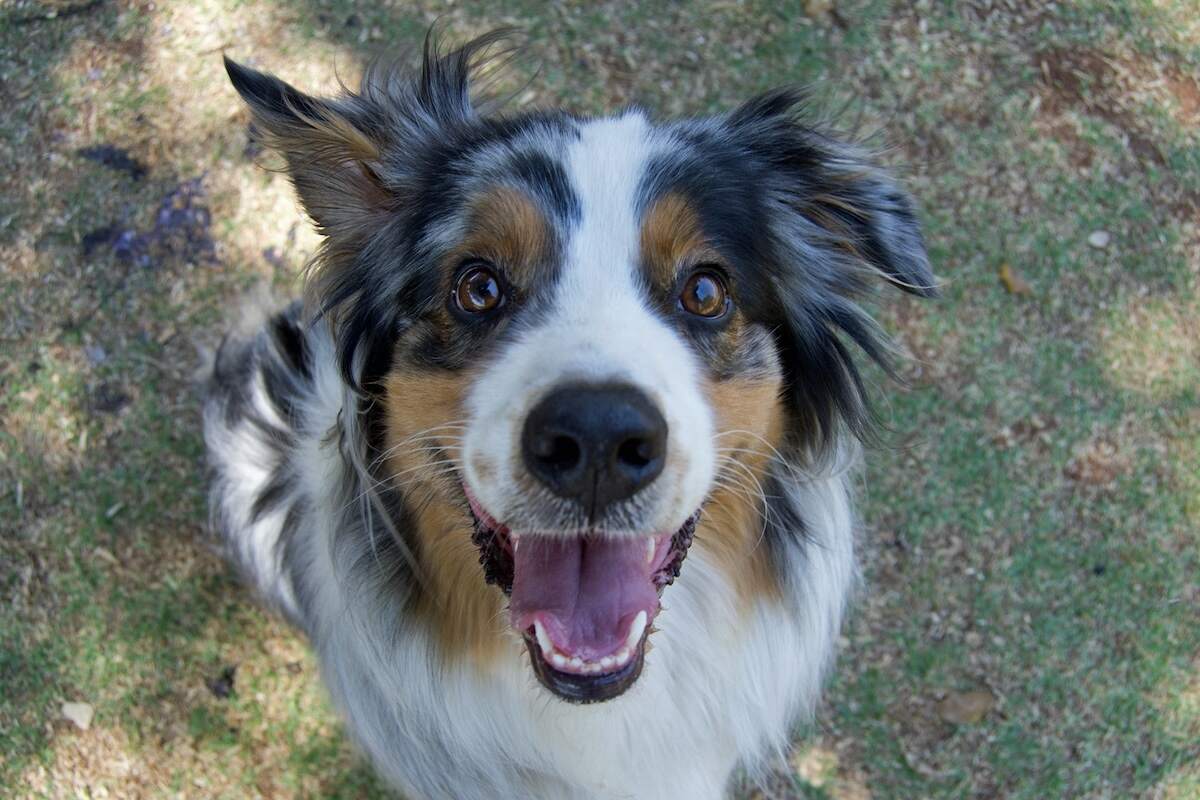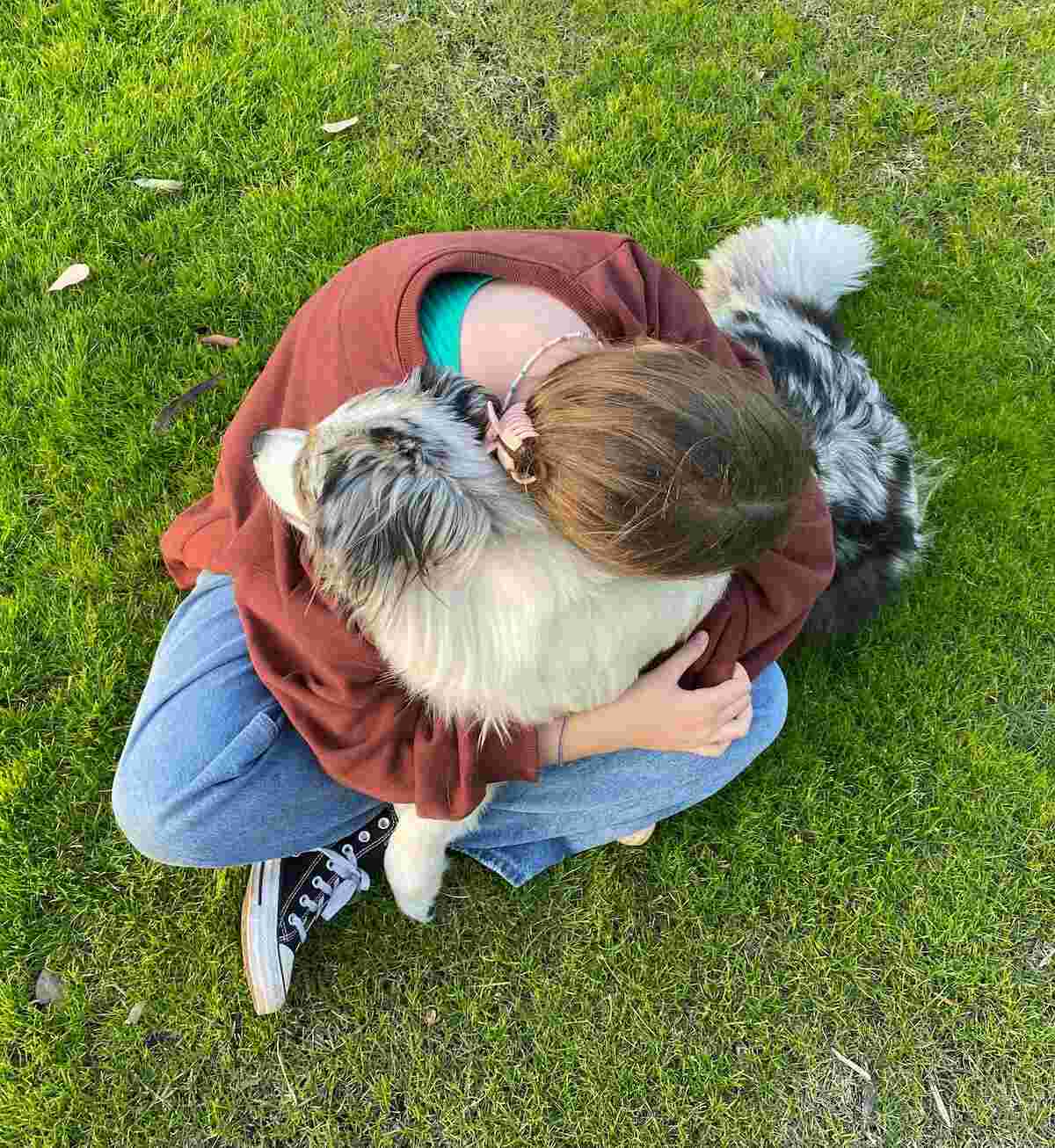
Your Miniature American Shepherd is more than just a smaller version of their full-sized cousins – they’re energetic, intelligent working dogs packed into a compact frame. And just like their personality is big despite their size, their nutritional needs are equally important and specific. Getting their diet right throughout their life stages will keep your mini Aussie healthy, happy, and ready for whatever adventure comes next.
What Should I Feed My Miniature American Shepherd Puppy?

The first few months are absolutely crucial for your mini Aussie puppy’s development. These little ones are growing rapidly and require fuel to support their physical and mental development. Puppy food specifically formulated for small to medium breeds is your best bet here.
Look for high-quality puppy food with at least 22% protein and 8% fat. The protein supports muscle development, while the fat provides essential fatty acids for brain development, and that gorgeous coat they’re known for. Since mini Aussies typically weigh between 20 and 40 pounds as adults, you’ll want food designed for medium-breed puppies rather than small-breed formulas, which are often too calorie-dense.

Feed your puppy three to four times daily until they’re about six months old. This frequent feeding schedule helps prevent hypoglycemia (low blood sugar) and supports steady growth. A good rule of thumb is about ¼ to ½ cup per meal, but always refer to the feeding guide on your specific dog food packaging and adjust this amount based on your pup’s body condition.
Don’t forget that puppies need more calories per pound than adult dogs – sometimes up to twice as much! Their metabolism is working overtime to fuel all that growth and puppy energy.
How Much Should I Feed My Adult Miniature American Shepherd?

Once your mini Aussie hits adulthood (around 12-18 months), their nutritional needs shift significantly. Adult dogs need fewer calories per pound than growing puppies, but the quality of those calories becomes even more important.
Most adult mini Aussies do well on around 1 to 1,5 cups of high-quality dry food daily, split between two meals. However, this can vary widely based on your dog’s activity level, metabolism, and overall health. An active working dog or one who participates in agility might need closer to 2 cups daily, while a couch potato might maintain their weight on less.
Look for adult dog food with about 18-25% protein and 8-15% fat. The protein supports muscle maintenance, especially important for these athletic dogs, while moderate fat levels provide sustained energy without excess calories that could lead to weight gain.
Pay attention to your dog’s body condition, rather than just relying on the scale. You should be able to feel their ribs easily, but not see them prominently. If you’re looking down at your mini Aussie from above, you should see a visible waist tuck behind their ribcage.
What Are the Best Foods for This Breed?

As your mini Aussie enters their golden years (typically around 7-8 years old), their metabolism starts to slow down, but their need for quality nutrition doesn’t. Senior dogs often benefit from foods with slightly fewer calories but maintained or even increased protein levels to help preserve muscle mass.
Look for senior formulas with around 20-25% protein and 8-12% fat. Many senior foods also include joint-supporting ingredients like glucosamine and chondroitin, which can be particularly beneficial for active breeds like Miniature American Shepherds who may develop joint issues as they age.
Consider switching to more frequent, smaller meals – perhaps three times daily instead of two. This can help with digestion and prevent the discomfort that sometimes comes with larger meals in older dogs.
Senior dogs may also benefit from foods with added antioxidants, omega fatty acids, and easily digestible ingredients. Some older Mini Aussies develop food sensitivities they didn’t have when they were younger, so watch for any changes in digestion or coat quality.
How Do I Know if it Has Food Allergies?

Food allergies and sensitivities aren’t uncommon in Miniature American Shepherds, and the signs can be frustratingly subtle. Common symptoms include chronic ear infections, excessive scratching, hot spots, digestive upset, or changes in coat quality. The tricky part is that these symptoms can take weeks or even months to develop, making it hard to pinpoint the culprit.
The most common food allergens for dogs are beef, chicken, dairy, wheat, and eggs – ironically, many of the most common ingredients in dog foods. If you suspect food allergies, work with your vet to conduct an elimination diet. This involves feeding a novel protein and carbohydrate source (something your dog has never eaten before) for 8-12 weeks.
Limited-ingredient diets can be helpful for dogs with sensitivities. These foods contain fewer ingredients, making it easier to identify and avoid problem foods. Some mini Aussies do well on grain-free diets, though recent research suggests these aren’t necessary for most dogs unless they have specific grain allergies.
Should I Give My Miniature American Shepherd Supplements?

Most mini Aussies eating a high-quality commercial dog food don’t need additional supplements, but there are some exceptions. Joint supplements containing glucosamine and chondroitin can be beneficial for active dogs or those with a family history of joint problems. Omega-3 fatty acid supplements can support coat health and may help with inflammation.
However, be careful not to over-supplement. Too much of certain vitamins and minerals can be harmful. Always consult with your veterinarian before adding supplements to your dog’s diet, especially if you’re feeding a complete and balanced commercial food.
One supplement that’s often overlooked is probiotics. These can support digestive health and immune function, which is particularly important for dogs with sensitive stomachs or those who’ve been on antibiotics.
Final Thoughts

Remember, every mini Aussie is an individual with unique needs. What works perfectly for one dog might not be ideal for another. Pay attention to your dog’s energy levels, coat condition, body weight, and overall health, and don’t hesitate to adjust their diet as needed. Regular check-ups with your veterinarian can help ensure you’re meeting all of your Miniature American Shepherd’s nutritional needs throughout their life stages, keeping them healthy and ready for whatever adventures lie ahead.




